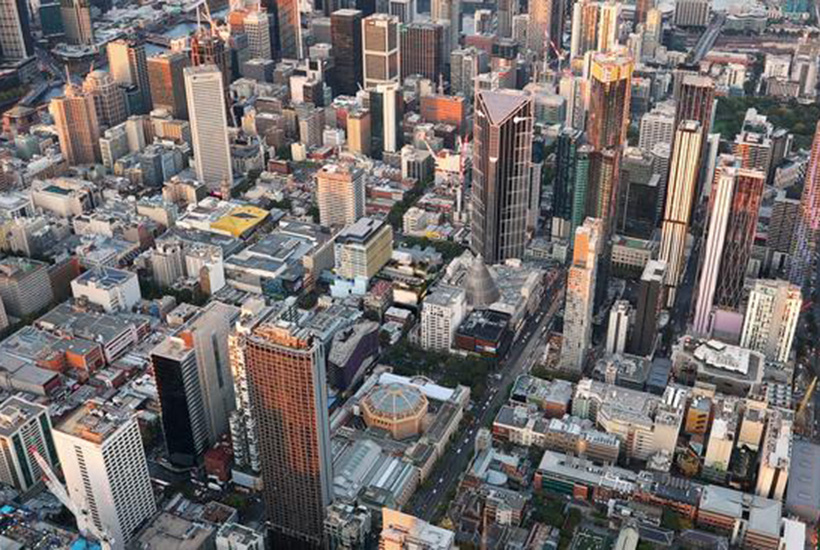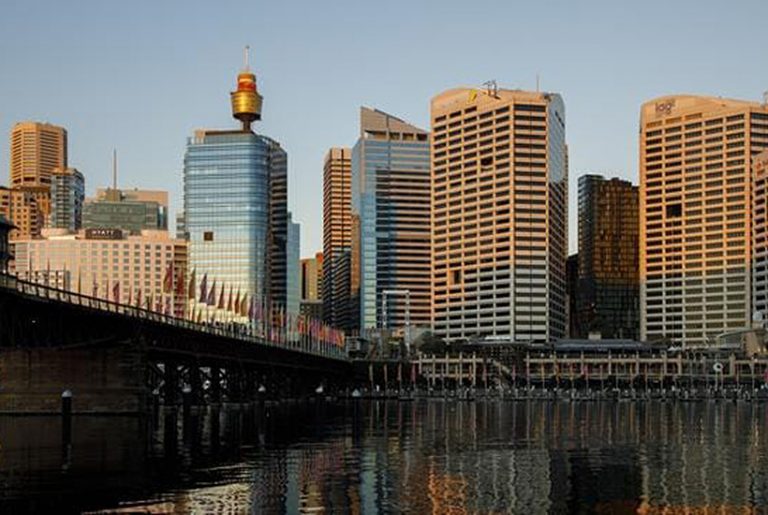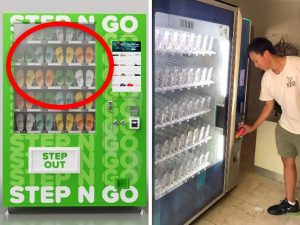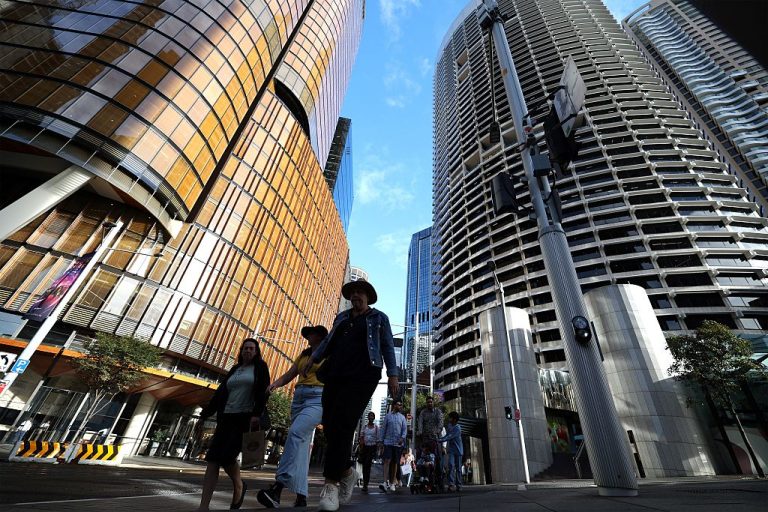Corporate Australia is girding for an extended slowdown as it deals with lockdown restrictions in Melbourne, with the clampdown delaying the return-to-work plans of major businesses in the Victorian capital.
The lockdown of the central business district is expected to spill over with national implications for businesses that operate across Australia as they are unable to fully reopen Melbourne offices as planned.
The ANZ and NAB have their headquarters in Melbourne, as does BHP, insurer Medibank and infrastructure company Transurban, as well as a host of industry superannuation funds. Many companies had hoped to step up their operations in July as they deal with a recession and position for a subsequent recovery.
While landlords have prepared their offices many companies have made only staggered returns and some remain closed with analysts warning the Melbourne lockdown would also hit retail property with shopping centre owners again facing closures of major chains.
Retail property is most exposed and malls are expected to underperform due to store closures as more retailers follow the lead of Solomon Lew’s Premier Investments in shutting and foot traffic drops.
Stockbroker Jefferies estimates rent collection is running at only 20-30% in large malls over the June quarter and those that depend on discretionary spending, such as Chadstone co-owner Vicinity Centres, the operator of the local Westfield empire, the Scentre Group, as well as Highpoint owner the GPT Group, are most at risk.
MORE: Office tenants call for continued rent relief
Office stocks are also expected to be hit by further negative sentiment as case numbers spike, despite rent collections for the last three months running at over 90%.
The impact of people not going back to work and increased sublease space as companies trim staff numbers and operate with skeleton numbers in offices would outweigh the reality of cashflow being robust against retail landlords, Jefferies said.
Experts warned there would also be delays in striking deals in properties in the Melbourne CBD, with city retailers hit hard as they need about three-quarters of the city workforce back in towers in order to do business.
The office vacancy rate in the Melbourne CBD went up to 7.7% in the last quarter as a number of new towers have been developed and buildings that depended on international students are also struggling.
JLL head of office leasing Tim O‘Connor says the tertiary and vocational education sectors have been one of the industries most impacted by COVID-19. “We have seen a number of institutions including RMIT and Monash University downsize their occupational footprint in the Melbourne CBD over the second quarter,” he said. After being relatively unscathed during the first wave of the coronavirus crisis, Australian Unity‘s office trust gave a gloomy outlook last week, saying that about 11 per cent of tenants by income had inquired about rental relief.
Landlords told The Australian they had received requests from small businesses, cafes and car parks, and lockdown could extend the pain.
“A lockdown is going to delay the recovery and increase the level of uncertainty,” CBRE Research associate director Ben Martin-Henry says, with it likely to prompt businesses to push back decisions on taking up space.
Martin-Henry says that rather than a “V-shaped” recovery implied in most modelling, an economic scenario with lockdowns could produce a more drawn out ”U-shaped” recovery.
Although the Melbourne lockdown is for six weeks, he said if this was extended it would have knock-on effects on the broader economy.
Westpac is forecasting that the Australian economy contracted by 7% in the June quarter with any recovery last month likely to be very mild compared to the collapse in April.
The bank’s economists warned that for Melbourne and regions including the NSW border, which account for about one-quarter of the economy, the base from which impact of the latest shutdown hit was still going to be quite weak compared to full capacity prior to the previous shutdown.
Westpac chief economist Bill Evans says if the recovery through June was 1.5% then with the economy relapsing to shutdown pace again meant there could be a 1.5% contraction over the next four to six weeks, with implications for the national economy.
“This means that while about 75% of the economy will still grow by 1.5% in the September quarter, 25% will stall, reducing our growth forecast for Australia to 1.1% in the September quarter from 1.5%,” Evans says.
The renewed lockdowns come amid intensifying debate about more permanent changes to managing staff and offices as companies deal with the post-COVID-19 world.
Tenant adviser Lpc Cresa says that offices have been overhauled so that staff can re-enter them but its surveys have shown that up to 45% of staff do not want to return.
Lpc Cresa director Julian Kurath says that occupancy levels are lifting now but says that CBDs are not getting much traffic, which is also affecting retailers.
The leasing adviser believes that offices will remain central to work but expects more working from home in future.
It says staff working even a few days at home could have the potential to drastically cut workspace requirements.
Kurath says he expects a jump in office space available for sublease and also expects a large number of office floors to come on to the market.
Meanwhile tenants are reluctant to sign leases on the same terms as prior to the pandemic breaking out as they seek protection against further problems emerging.
This article originally appeared on www.theaustralian.com.au/property.








